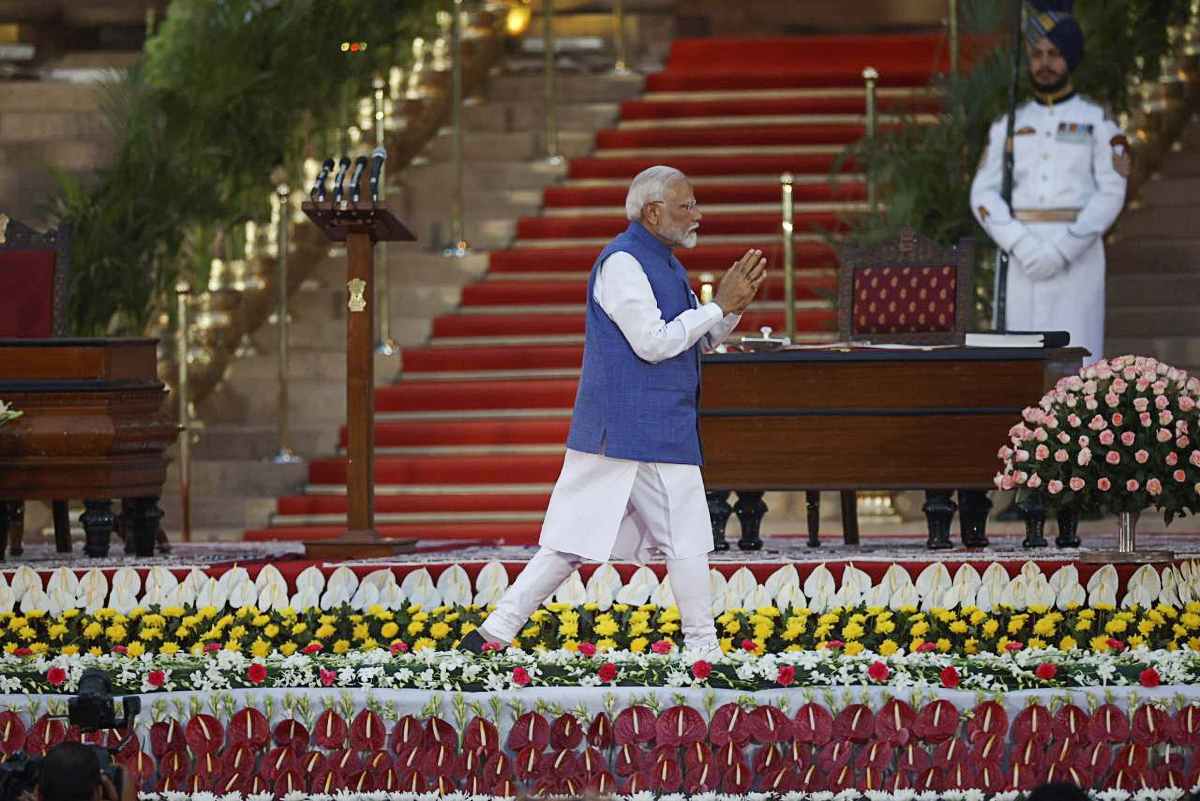
The recent formation of Narendra Modi’s third cabinet highlights a troubling reality: the systematic exclusion of Muslims from political representation in India. Despite a seemingly diverse cabinet, with members from various disadvantaged communities, Muslims remain conspicuously absent. This exclusion is a clear indicator of the deepening marginalization of a significant minority in India.
Political representation is crucial for any democracy, symbolizing inclusion and equal participation. Yet, the number of Muslim candidates nominated by all political parties combined has drastically declined from 320 in 2014 to a historic low of 94 in 2024. This decline spans across the political spectrum, including parties that profess commitment to secular democratic principles.
The BJP’s ideological project, influenced by the Rashtriya Swayamsevak Sangh (RSS), has achieved significant success by ensuring minimal Muslim representation in Parliament and state legislatures. More alarmingly, opposition parties like the Congress have also refrained from nominating Muslim candidates outside a few high-Muslim-concentration constituencies, effectively capitulating to the BJP’s exclusionary agenda. For instance, the Congress did not nominate a single Muslim candidate in several major states in the 2024 elections. Major opposition parties collectively fielded only 43 Muslim candidates, a sharp fall from 115 in 2019. This shift reflects what political scientist Ali Khan Mahmudabad describes as a move from marginalizing Muslims to actively excluding them.
Amidst this bleak landscape, there is a silver lining. Despite the drastic reduction in nominations, the number of Muslim candidates elected remained steady at 24, disproving the notion that Muslim candidates lack “winnability.” This resilience showcases the determination of voters to defy exclusionary politics. The BJP’s electoral strategy under Modi has fundamentally altered Indian politics. By fielding only one Muslim candidate in 2024, the BJP aligns with the RSS’s vision of a Hindu India, relegating Muslims to second-class citizenship. Modi’s rhetoric, coupled with hateful speech from his senior colleagues, has further stigmatized Muslims as disloyal and dangerous.
This exclusion has severe social implications. Muslims, around 14% of India’s population, face increasing marginalization and targeted violence. Hate speech, mob lynching, and hate crimes have become commonplace. The 2024 elections saw Muslims being used as scapegoats to inflame social tensions, rather than addressing their legitimate concerns. Historically, Muslims have never been proportionately represented in the Lok Sabha, averaging only 6% of members since 1952. This underrepresentation has worsened with the rise of the BJP. In 2024, Muslims held only 24 seats, far below their proportionate share. This decline is linked to the BJP’s strategy of uniting non-Muslim communities against Muslims, making Muslim votes dispensable.
The BJP’s success in excluding Muslims is evident in its ability to garner support from various communities, including Christians and Dalits. This strategy unites non-Muslim communities against Muslims, reinforcing their marginalization.
The lack of political representation for Muslims is not just a failure of the BJP but of the entire political system. Non-BJP parties have largely capitulated to the BJP’s agenda, avoiding Muslim candidates to avoid alienating Hindu voters. This shift from a “political majority,” based on policy and governance, to a “communal majority,” based on religious identity, further entrenches Muslim marginalization. The 2024 elections reveal a deepening crisis: Are Muslims in India destined to be perpetual outsiders, or will they be recognized as equal citizens with full political rights? The fight for Muslim representation is not just about seats in parliament but about affirming the inclusive spirit of India’s democracy.
In conclusion, the exclusion of Muslims from political representation is not just a political issue but a social crisis threatening the fabric of Indian democracy. It is imperative for all political parties, civil society, and citizens to recognize and address this exclusion. Only then can India truly live up to its democratic ideals and ensure equal rights and representation for all its citizens, regardless of their religion.
